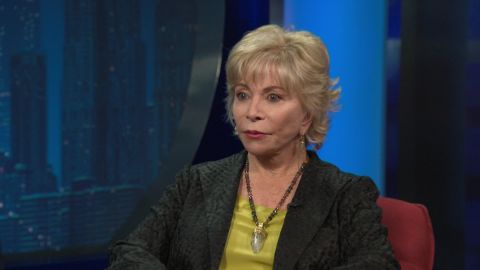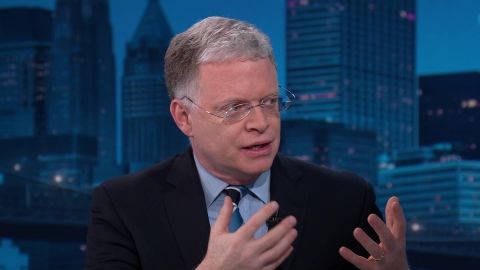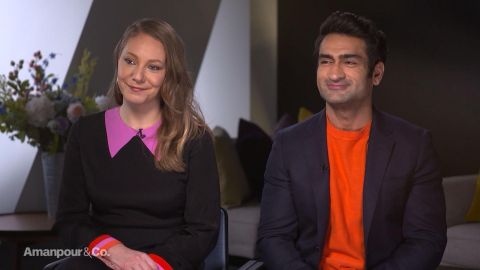Read Transcript EXPAND
CHRISTIANE AMANPOUR: Okay. So, this is really an amazing story. It’s about immigrants, you know, in a time when, you know, it’s like a hot topic and it’s about hope. It’s not about the sort of massive tragedy, or some of it is quite sad. Just tell me why you thought of doing this.
EMILY V. GORDON, EXECUTIVE PRODUCER, “LITTLE AMERICA”: Well, we thought that — the idea was brought to us by a friend of ours and we — immediately, Eisenberg (INAUDIBLE), we immediately kind of fell in love with the idea. It should exist. Like those are the best kinds of ideas, are the ones that when you hear them, you’re like, yes, of course it should exist. And I think for us we wanted to show a variety of experiences that immigrants have. That’s why the anthology series was important to us. There’s no one immigrant experience, there’s no one monolithic experience. And I think you and I both kind of traffic in hope a little bit. I think, in general —
AMANPOUR: So, I was wondering where that was going, trafficking.
GORDON: Yes.
KUMAIL NANJIANI, EXECUTIVE PRODUCER, “LITTLE AMERICAN”: Hope, it’s a new drug we’ve got.
GORDON: It’s a great new drug.
NANJIANI: Very addictive.
GORDON: I think we both are somewhat optimistic and I think also there are plenty of things that focus on the very real struggles that immigrants have and the —
NANJIANI: Well, this show has struggles too.
GORDON: A lot of struggles. But it’s not struggle porn is the only term I can think of. It’s not — I think where we’re highlighting, look how much they’re suffering.
AMANPOUR: Yes.
GORDON: Isn’t it important? We wanted to show these people as full human beings.
AMANPOUR: Well, and that in itself is a radical concept. You are an immigrant.
NANJIANI: I am. That’s right.
AMANPOUR: Is that why you were attracted to it or what?
NANJIANI: Certainly, part of why I was attracted to it. I feel like there’s a sense that immigrant stories are only — no matter what side of the political debate you’re on, that immigrant stories are only worth telling if they’re full of tragedy.
GORDON: Fraught.
NANJIANI: Yes. And so, my immigrant experience has been different from every other immigrant’s experience, just as, you know — as Emily was saying, there’s no monolithic immigrant experience. And generally, when you hear the word immigrant in America you conjure the same image, whatever side of the political debate you’re on. So, we just wanted to tell stories that were different from that, that did have a little bit more hope.
AMANPOUR: Both of you have used the word human, to humanize immigrants. I mean, it’s kind of extraordinary that we actually even have to say that because people are people and they’re human beings. But in this atmosphere, it is a radical concept.
GORDON: It shouldn’t be.
NANJIANI: Right.
GORDON: Yes.
NANJIANI: I mean, it’s weird, you know. We really did not want our show to have any political messaging within the show, but it’s very existence just saying immigrants are human beings is now a radical political statement.
About This Episode EXPAND
Journalist David Rohde explains why he describes Attorney General William Barr as President Trump’s “sword and shield.” Comedian Kumail Nanjiani and writer Emily V. Gordon sit down with Christiane to discuss their new show “Little America.” Novelist Isabel Allende joins Walter Isaacson to discuss immigration, loss and her new novel “A Long Petal of the Sea.”
LEARN MORE


